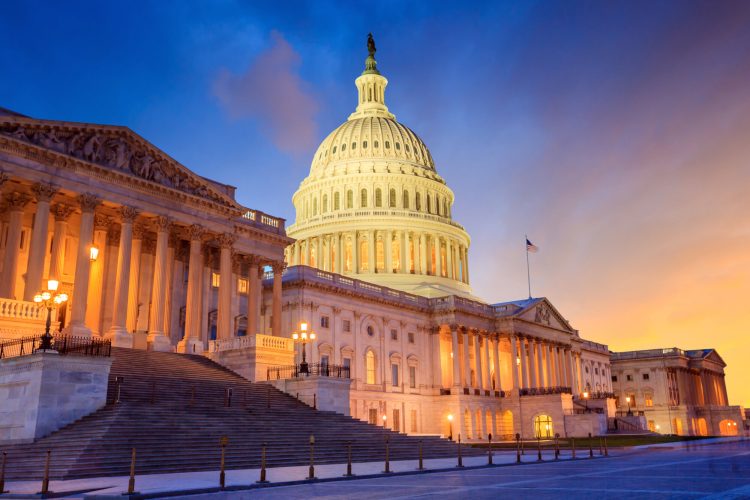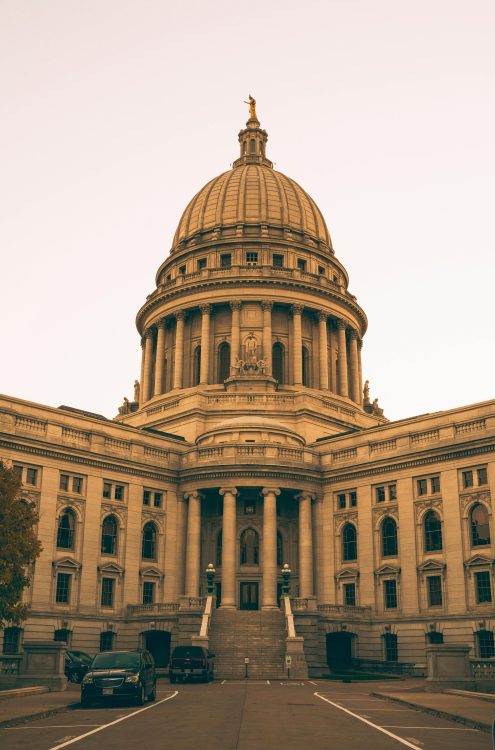This week on Facing the Future, we focused on the political arguments surrounding President Biden’s Build Back Better Act (BBBA) and specifically the concerns raised by West Virginia Senator Joe Manchin – a fiscally conservative Democrat – over the cost of the bill and how it is paid for. The bill cannot survive a Senate vote without Manchin’s support, and his outsized influence has already whittled down the overall price tag of the new social safety net and climate change spending bill from an estimated $3.5 trillion over 10 years to $1.75 trillion.
We started off with an internal discussion of the arguments being made by progressive and moderate Democrats as the bill works its way through Congress. Concord Coalition Policy Director Tori Gorman and National Field Director Phil Smith joined me for that part of the program, as well as Av Harris, Concord Coalition’s new Communications Director, for his take on the Democrats’ challenge messaging the components of the BBBA.
Harris observed that, “the difficulty the Democrats are having right now, especially out of the White House, is that there are economic realities that are hitting that they seem to be surprised by and have not adequately prepared for.” Gorman added that a big political challenge for Democrats is that “it’s easier to message ‘no’ than to message ‘yes.’ ”
We then took a virtual road trip to Senator Manchin’s home state of West Virginia and got some perspective on some of the arguments being made for and against certain parts of the BBBA. Joining us for that segment were Karen Kunz, Associate Professor of Public Policy at West Virginia University, and two of her graduate students in the Public Administration program, Elizabeth Satterfield and Mason Arbogast.
Professor Kunz said that she perceived a “huge disconnect” between Senator Manchin’s stated concerns over the cost of the BBBA and its possible impact on inflation, and where West Virginia voters stand on those issues.
“West Virginia is one of the poorest states in the nation,” said Kunz. “We have low education rates. The child tax credit would be an extraordinary benefit for us. It’s already raised hundreds of thousands of people out of poverty in our state.”
Satterfield expressed support for some of the social safety net expansions in the BBBA, but also said she is “concerned about our federal debt and our spending as a young person inheriting all of these problems.”
“Young people in West Virginia who are entering the workforce and thinking about politics more critically starting out in their young lives are very concerned with these major issues like the national debt, climate change, inequalities, and wealth disparities,” she added.
Arbogast spoke about the importance of addressing the nation’s growing wealth inequality.
“Sustainability is a huge concern and it’s an issue that does not come up enough,” said Arbogast. “How do we raise trillions of dollars and fix a lot of these issues that we as a country are facing, like Social Security? The short answer is to make people pay their fair share. There are way more people making millions and millions of dollars who don’t pay their fair share than there are in the middle and the bottom paying more than their fair share, and that is why we are seeing the funding problems and the reports that Social Security will run out of money by 2034.”
Hear more on Facing the Future. I host the program each week on WKXL, NHTalkRadio.com (N.H.), and it is also available via podcast. Join me and my guests as we discuss issues relating to national fiscal policy with budget experts, industry leaders, and elected officials. Past broadcasts are available here. You can subscribe to the podcast on Spotify, Pandora, iTunes, Google Podcasts, Stitcher or with an RSS feed. Follow Facing the Future on Facebook, and watch videos from past episodes on The Concord Coalition YouTube channel.
Continue Reading










